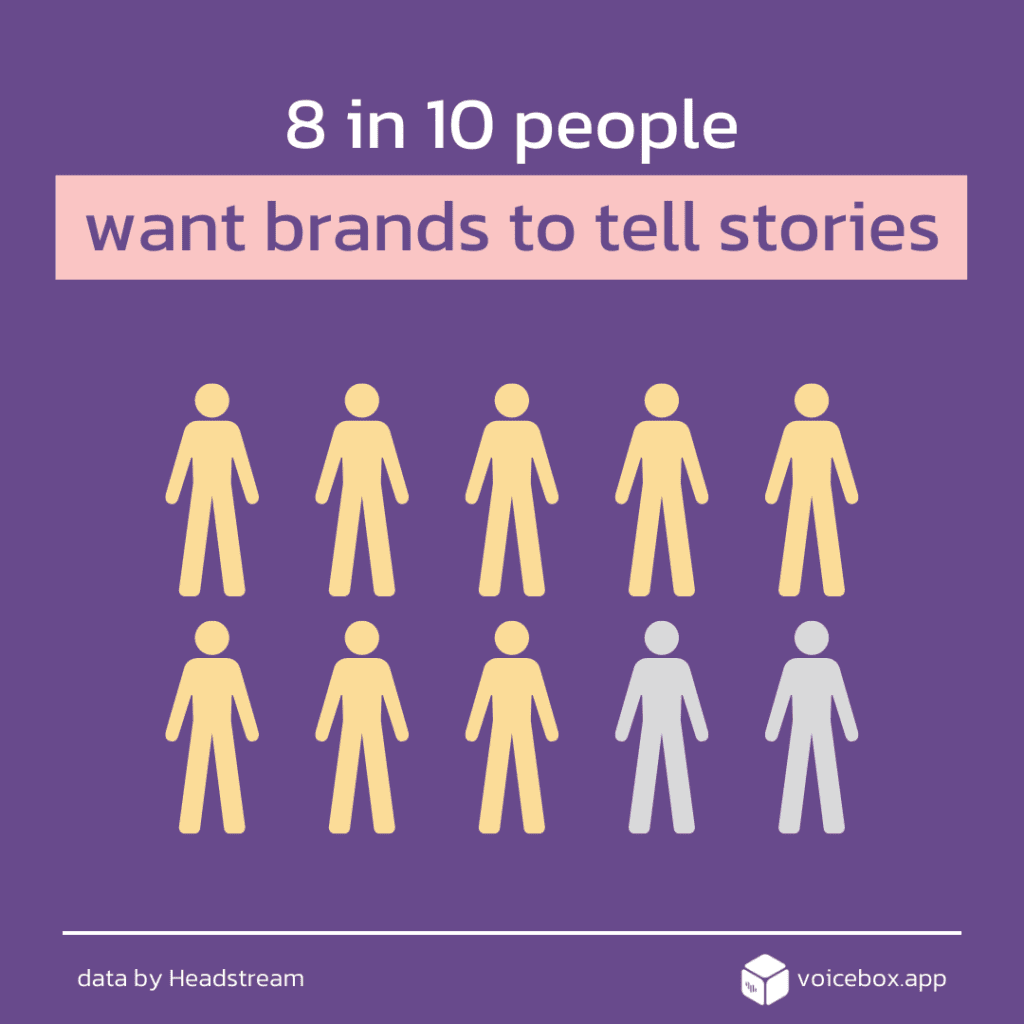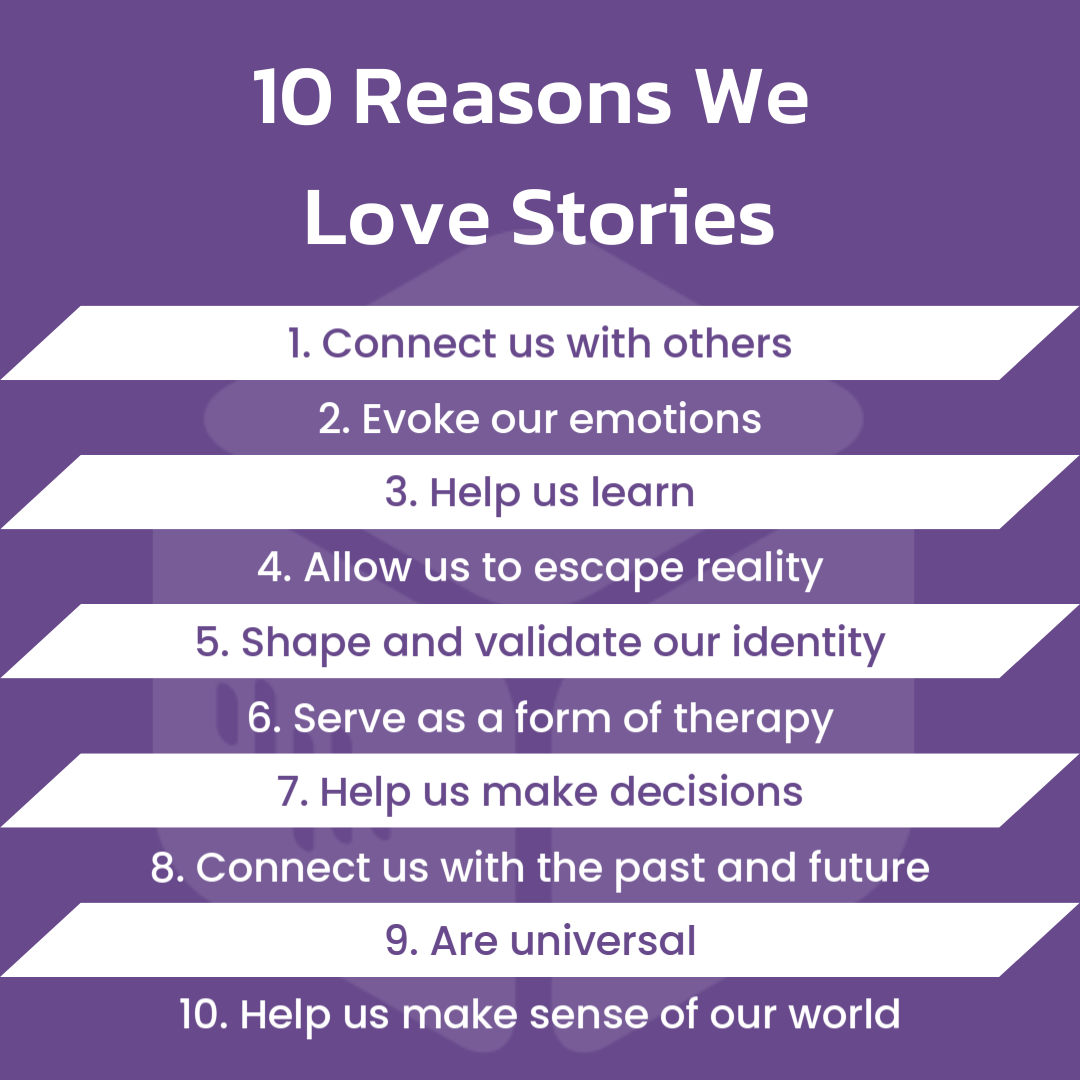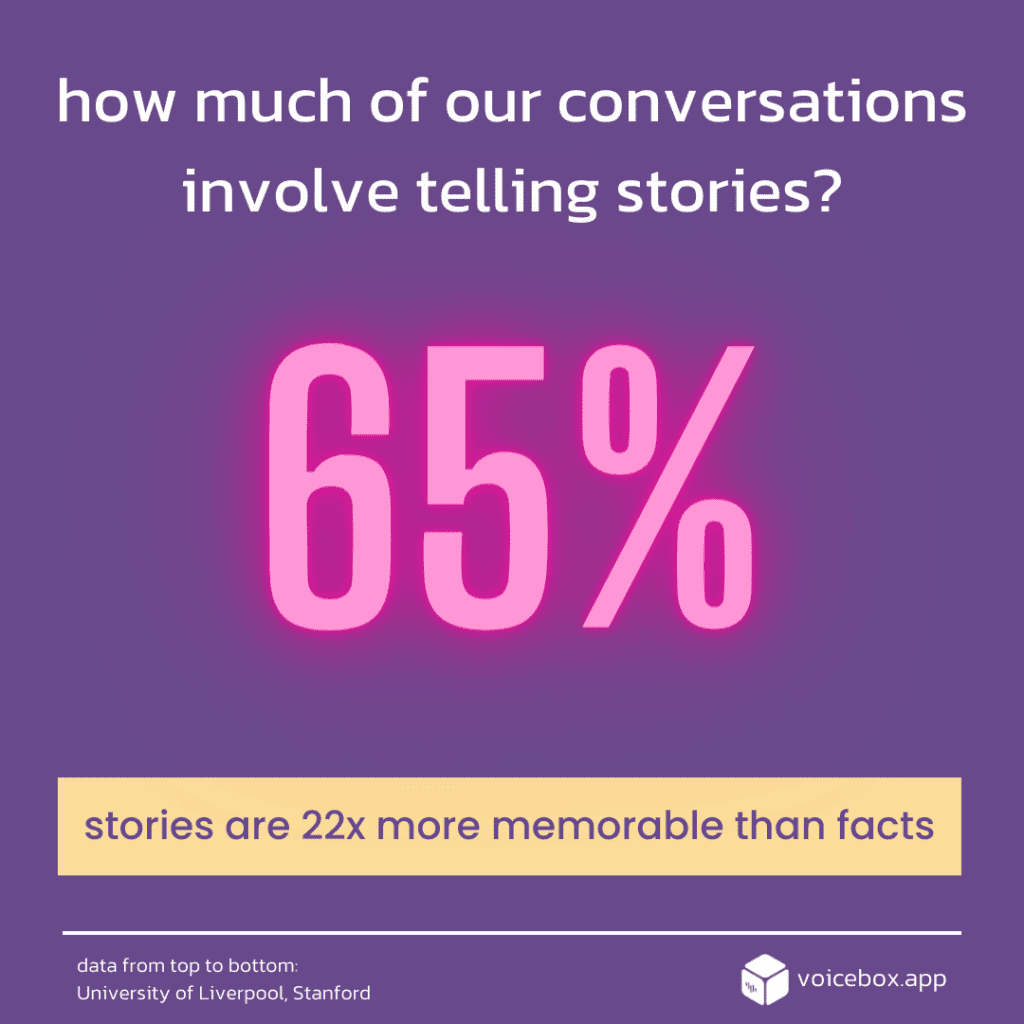Listen to the blog post here.
In the movie A Time to Kill, Carl Lee kills two white men who raped and attempted to kill his black daughter. Facing an all-white jury and an incoming guilty verdict, Carl Lee’s lawyer Jake Brigance asks the jury to close their eyes as he walks them through in great detail the ordeal of Carl Lee and his baby girl. He finishes his closing by then asking them to imagine that the girl is white.
The jury returns with a not guilty verdict.
Even in a courtroom, where evidence should reign supreme, a powerful story that reaches the hearts of people can open a seemingly shut case. The fact that I use a fictional story to demonstrate the power of stories is a case in point unto itself. Stories connect us by their nature of relatable human experiences.
Our Fascination with Stories
As author Jonathan Gottschall fittingly writes, “We are, as a species, addicted to story. Even when the body goes to sleep, the mind stays up all night, telling itself stories.” As children, we love our bedtime stories. As we grow up, we find entertainment, comfort, and belonging in the stories we see on the screen, the stories of our parents, the stories of our friends, and even our own memories. Sensational stories and the latest drama grab our attention, while tragic stories, like that of a school shooting, tug at our heartstrings.
Stories fuel the engine of life. So much so that a study at the University of Liverpool found that stories make up 65% of our conversations. From brief ones like complaining about traffic to the Monday morning “how was your weekend?”, we are constantly telling others about either our own experiences or sharing someone else’s.
And it’s not just in the way we speak. It’s also the preferred method of consuming content. The Delhi School of Marketing found that storytelling can increase conversions by 30% when used to answer customers’ questions. Headstream found that 8 out of 10 people want brands to tell stories. When we listen, we tend to lean in closer when the other person tells a story.

Why We Love Stories
From daily conversations to marketing, stories surround us. But why the fascination? Why do we love stories?
- Stories allow us to connect to others. Humans aren’t robots. What drives us goes beyond simple logic. Stories help explain that logic and boost empathy. We’re able to better understand the motivations and emotions of other folks, and that connection grows further if we can see ourselves in the same shoes.
- Stories evoke our emotions. Certainly more than facts and figures can, and we love to be in our feels. We love to laugh, and even if we don’t like to be sad, negative emotions help us to better appreciate the positive ones. For example, times of grief can make you more grateful for times of happiness. That emotional release feels good, and when shared with others, makes us feel alive.
- Stories help us learn. You may often hear people say they are “visual learners” or “auditory learners”. Stories combine the best of both and help the lessons stick. These lessons can be related to a skill set or subject matter we’re studying or life lessons that we can recall when we face similar situations.
- Stories allow us to escape from reality. Humans have an innate desire for entertainment, and stories scratch that itch better than any other medium. For that moment, you can suspend the pains or monotony of life and enter a world of excitement.
- Stories shape and validate our identity. It’s not enough to know who you are. Your personal stories can explain why you are. And while our own stories shape our identity, hearing the stories of those who have gone through similar experiences can help us feel understood. Additionally, stories about our culture and history can help us connect with our heritage and our community.
- Stories can be a form of therapy. We may feel like others aren’t going through what we’re going through, but chances are someone has shared your experience. Stories bridge that gap. And if that connection alone isn’t therapeutic enough, knowing that others have overcome similar challenges can empower us to overcome our own.
- Stories help us make decisions. Elaborating on the tail end of the previous point, stories can inform our actions. For example, if you go to a restaurant and ask for extra spice, then proceed to have an awful stomach ache throughout the night, you will likely decide to avoid the extra spice the next time you visit that restaurant. You might think I’m speaking from personal experience. It’s because I am.
- Stories connect us with the past and future. Even a time as recent as our parents’ generation may feel like a different world, but you’ll find a lot of common threads throughout history that make the past worth studying. The cliche “those who don't know history are doomed to repeat it” has validity. Stories help us understand that history. We can then carry it forward with stories that imagine new possibilities for the future.
- Stories are universal. While the specifics of our experiences may differ from person to person, stories touch on common themes that play to the similarity of our motivations. Most people long for things like love, security, companionship, wealth, and success. While the contexts of stories may differ, we can still extract the elements that connect with us.
- Stories help us make sense of the world around us. Contrasting the two points above, there are a number of differences given any combination of time and setting. Even from person to person, context changes. Stories explain all of that. They allow us to piece together the stories of various people so we can build in our minds a picture of our world.

The Science Behind Stories
A key piece of advice my speech coach gave me when competing in the event “original oratory” was to use stories. Her point was that while facts and statistics do a good job of proving a point through logic (logos), stories resonate with the experiences and emotions of the listener (pathos).
Sure enough, every competitor included a variety of stories in their oratories, from personal ones to ones about public figures to fairytales. Specifically, the orators would often open with a humorous story and end with one that tugged at the heartstrings. This formula undoubtedly works as the ones who competed and won at the highest levels implemented it. These stories allowed the audience to relate to the speaker’s message on a personal level. It made the message relatable and real.
That’s what it comes down to in a nutshell. When you incorporate a story into your message, you become more memorable. Dr. Jennifer Aaker, Professor at Stanford, found in her research that stories are 22 times more memorable than facts alone. According to Dr. Aaker, “Research shows our brains are not hard-wired to understand logic or retain facts for very long. Our brains are wired to understand and retain stories.”
Reports from the Harvard Business Review demonstrate that human beings are naturally wired to respond better to storytelling than most other forms of content sharing. This is because narratives promote the production of “oxytocin,” a hormone associated with trust.
Undoubtedly though, you may forget these statistics and studies that I’ve cited and only recall me having stomach issues after eating spicy food.

Telling Stories on Voicebox
As I’ve mentioned in the past, we learn to speak and listen before we learn to read and write. Telling stories predates the advent of the printing press. Before books, people passed down stories through word of mouth, and even now, we far more often tell stories than write them. There’s a reason this was and continues to be so effective.
Our voices are the perfect way to communicate stories. While a picture may be worth a thousand words, your voice is worth a million. All the reasons we’ve talked about as to why we gravitate toward stories are captured by the qualities of the human voice. The emotions with which we speak drive the connection our listeners feel to the stories we tell. The human nature of voice fuses perfectly with the human nature of stories, creating a piece of content that touches our core.
That’s what makes Voicebox the perfect medium for telling stories. With just a few moments, stories capture the listener’s attention and help them remember your message. Whether that be sharing a part of your day, recalling a memory, talking about whatever’s happening now with the royal family, creating a microcast series, or otherwise, voice notes make the story experience more enjoyable. The use cases of stories abound, and your voice is the best way to make use of them.
Sunday Blog is a series where we discuss the many facets and functions of the human voice.

